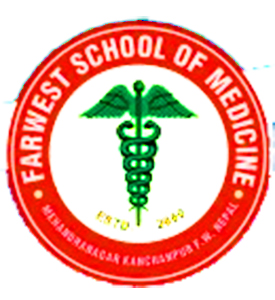Overview
Certificate in Medical Laboratory Technology (CMLT) – Mahakali Polytechnic Institute
The Certificate in Medical Laboratory Technology (CMLT) is a three-year academic program offered by Mahakali Polytechnic Institute in Ward No. 4 of Bhimdatta Municipality, Mahendranagar, Kanchanpur, Nepal. This course is affiliated with the Council for Technical Education and Vocational Training (CTEVT). The program is designed to produce skilled lab technicians capable of performing essential diagnostic laboratory procedures that support clinical decision-making. Admission is open to students who have passed the Secondary Education Examination (SEE) and qualify through the CTEVT entrance exam.
Curriculum Details
The course content is structured around both theoretical instruction and practical experience. The first year focuses on foundational sciences, the second year emphasizes applied medical and clinical laboratory sciences, and the third year integrates professional practice and fieldwork.
- Medium of Instruction: English
- Program Duration: 3 Years
- Annual Enrollment Capacity: 30 Students
- Total Cost: NPR 205,000 (Approx.)
Objectives
-
Train students to perform routine and advanced laboratory tests independently.
-
Support healthcare providers in disease diagnosis and monitoring.
-
Build technical proficiency in clinical biochemistry, microbiology, hematology, and pathology.
-
Prepare graduates to function effectively in public and private diagnostic laboratories.
-
Encourage adherence to safety protocols and ethical standards in laboratory settings.
Scope
After completing the program, graduates are eligible to register with the Nepal Health Professional Council (NHPC) under Grade “B.” They can then work in government hospitals, private clinics, medical colleges, research centers, diagnostic labs, and other health-related sectors that require skilled laboratory staff.
Learning Outcomes
Graduates of the CMLT program will be able to:
-
Conduct clinical laboratory tests, including blood, urine, and tissue analysis.
-
Maintain laboratory instruments and ensure accuracy in results.
-
Assist in sample collection, preparation, and interpretation of test outcomes.
-
Follow biosafety and quality control standards in a laboratory setting.
-
Contribute to disease prevention and surveillance through laboratory services.
Skill Development Modules
This course includes intensive lab-based training across key modules such as:
-
Clinical Biochemistry
-
Hematology and Immunohematology
-
Medical Microbiology and Parasitology
-
Histopathology and Cytology
-
Instrumentation and Laboratory Management
Training is conducted in well-equipped labs, with periodic assessments and supervised field exposure to real diagnostic environments.
Teaching Methodology
The instructional approach combines:
-
Classroom-based lectures
-
Laboratory practicals
-
Case study discussions
-
Field assignments
-
Continuous internal evaluations
This method ensures students gain the theoretical base and practical insights necessary for independent lab work.
Admission Requirements
To qualify for admission into the CMLT program, applicants must:
-
Have passed the SEE (or equivalent SLC) with a minimum GPA of 2 or a pass division.
-
Have studied and passed English, Science, and Mathematics.
-
Pass the CTEVT-administered entrance examination.
Required Documents:
-
Completed admission application form
-
Academic transcripts and relevant certificates
-
Photocopy of citizenship certificate
-
Six recent passport-sized photographs
Career Opportunities
Graduates of the CMLT program can pursue employment in:
-
Central and district hospitals
-
Clinical laboratories and diagnostic centers
-
Teaching and research hospitals
-
Molecular and biotechnology labs
-
Private clinics and pharmaceutical labs
-
Food and dairy industries require lab technicians
Over time, students may pursue higher education in Medical Laboratory Science or allied health fields.
Scholarships and Financial Aid
Mahakali Polytechnic Institute provides scholarship options to deserving students through:
-
Mayor’s Scholarship Program
-
Reserved seats for students from marginalized backgrounds
-
Support from local government and social development funds
These opportunities are aimed at enabling academically capable students from low-income families to access technical education.
Why Choose This Course?
The CMLT course is ideal for students interested in clinical science and diagnostics. Medical laboratory technicians are essential in the early detection and monitoring of diseases, as their work directly relates to healthcare service delivery. Mahakali Polytechnic Institute's structured training and practical orientation allow students to develop employable skills and contribute meaningfully to the health sector.
Conclusion
The Certificate in Medical Laboratory Technology program offered by Mahakali Polytechnic Institute provides a solid educational path into diagnostic medicine. By combining academic theory, lab training, and field exposure, the course supports the development of skilled professionals ready to meet the demands of the healthcare industry. This program not only prepares students for employment but also sets the stage for continued academic growth in the field of medical laboratory science.


















